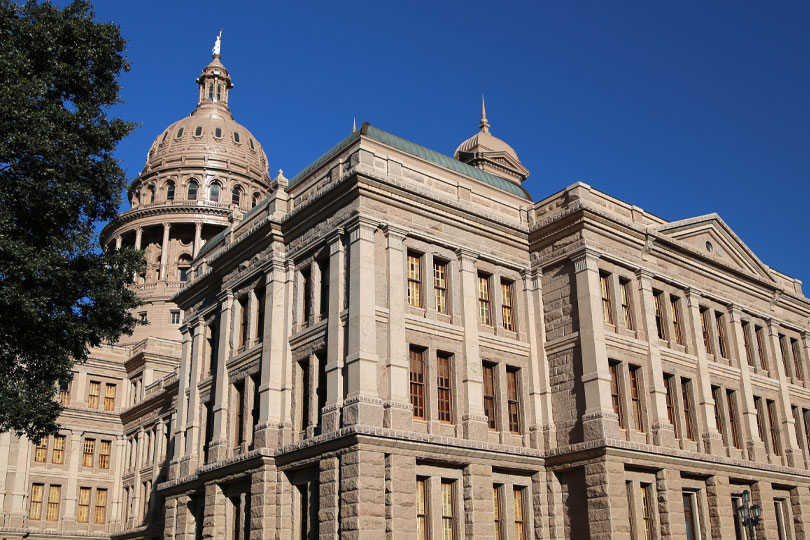By Julie Tomascik
Editor
Interim committee charges were announced for the Texas Senate and Texas House.
During the non-legislative year, policy issues are assigned to committees in the Texas Senate by Lt. Gov. Dan Patrick and in the Texas House by Speaker Dade Phelan. Agency officials, organizations and other experts are often invited to testify on issues pertaining to various committees.
As freshman legislators and seasoned colleagues return to Austin, Texas Farm Bureau (TFB) leaders and staff prepare to advocate for agriculture and the organization’s priority issues.
“The interim studies are seen as sort of an unofficial starting point for preparing the next legislative session,” TFB State Legislative Director Charlie Leal said. “Throughout the entire process, Farm Bureau legislative staff worked closely with legislators and their staff on ensuring issues important to TFB members were included.”
The charges help guide the Senate and House heading into the 88th Legislature, which is set to begin in January 2023.
Texas Senate interim charges
Property tax relief, supply chains, rural connectivity and meatpacking facilities are among the interim topics the Senate is studying.
The Finance Committee will examine property taxes and recommend ways to reduce the property tax burden. Senators will review and report on proposals to use or dedicate state revenues in excess of the state spending limit to eliminate the school district maintenance and operations property tax.
Supply chain issues became apparent during the COVID-19 pandemic. The Business and Commerce Committee will study the recent issues and recommend actions to mitigate future disruptions.
The Business and Commerce Committee also will monitor the implementation of legislation that would expand broadband throughout rural Texas.
The need for additional meatpacking facilities in the Lone Star State will be one area the Water, Agriculture, and Rural Affairs Committee will focus on this year. They will evaluate and report on the increased costs to Texas ranchers and revenue lost in the Texas economy when meatpacking facilities are used outside of Texas.
“These are topics of major interest to our members, to all of Texas agriculture and to rural communities,” Leal said.
Texas House interim charges
The House will study feral hogs, right to farm, groundwater permitting and border security, among others.
The Committee on Agriculture and Livestock will focus on the experimental use program for feral hog abatement and the right to farm in Texas.
A rider in the state budget, which passed in last year’s legislative session, allocates funding to the Texas Department of Agriculture and Texas A&M AgriLife Extension Service to research and develop further methods of feral hog control, including a feral hog toxicant that has been approved by the U.S. Environmental Protection Agency but is not yet available in Texas. The interim charge will ensure proper legislative oversite of the program.
The right to farm charge will study the impact that local government regulations and requirements have on agriculture, Leal noted.
The Committee on Natural Resources will study groundwater management policy and regulatory framework, as well as provide recommendations on the permit application process.
The border security charge, which will also be studied by the Senate, will focus on the impact of Operation Lone Star. Lawmakers will identify and report on resources needed to ensure support of the State National Guard, as well as overall resources necessary for border security for future legislative consideration.
“Feral hogs, the right to farm, groundwater and border security are key areas of concern for farmers, ranchers, landowners and Farm Bureau,” Leal said. “Communicating with lawmakers throughout the interim studies allows us to share the needs of rural Texas.”
Other topics the House is studying that relate to agriculture include the Universal Service Fund, inflation, extraterritorial jurisdiction and annexation powers, wildfires and prescribed burns, alternative-fueled vehicles, rural employment, Daylight Saving Time and cattle theft.
Throughout the year, the committees will ask for testimony and information regarding the various topics.
“Farm Bureau and our members will be invited to testify on several of these topics since they pertain to agriculture and rural Texas. If we’re not invited, we’ll request to testify in order to provide information from our members’ points of view,” Leal said.

